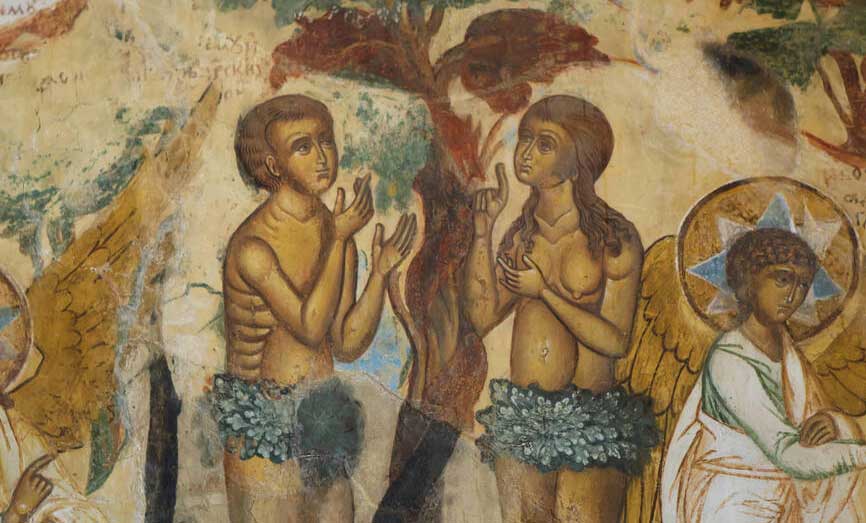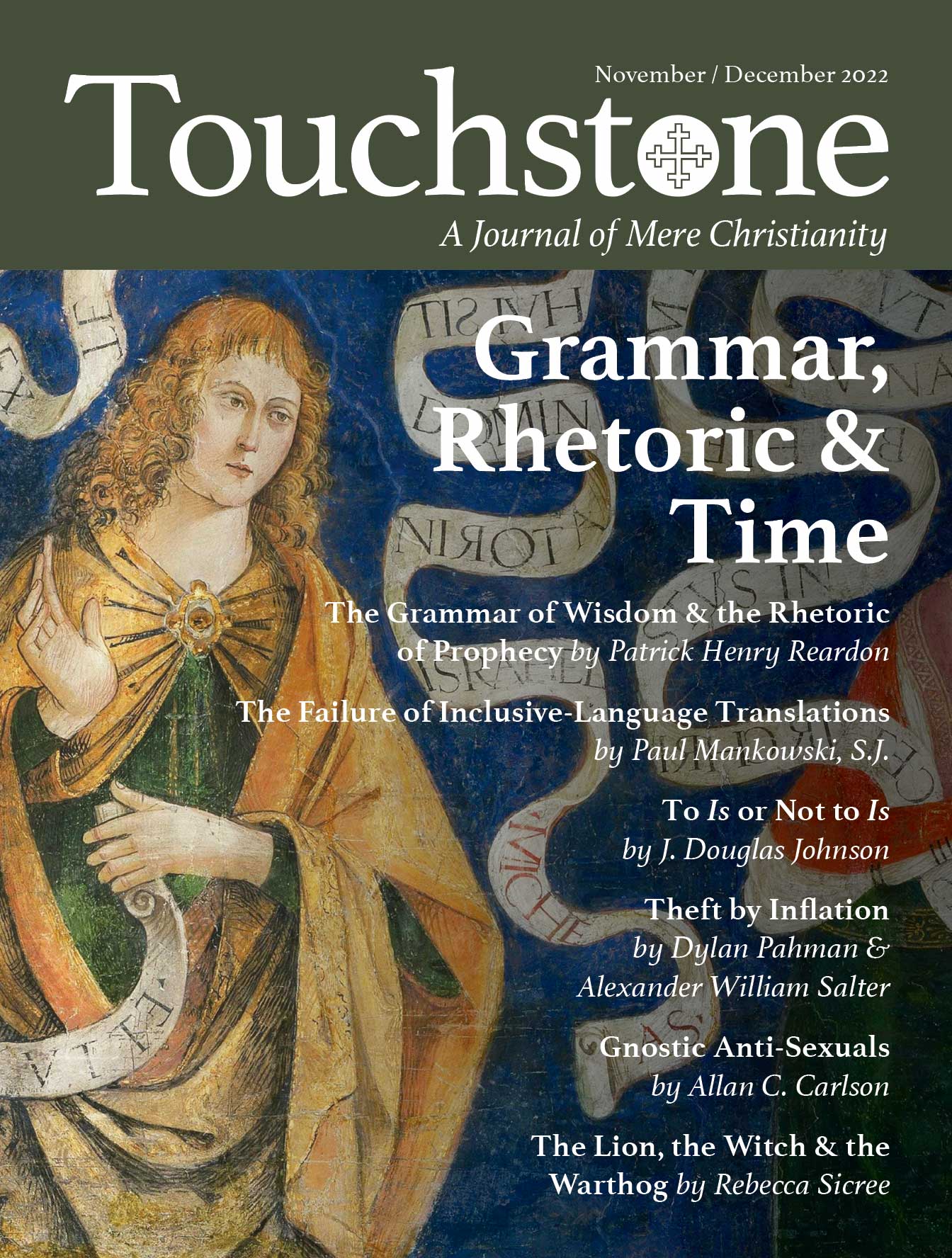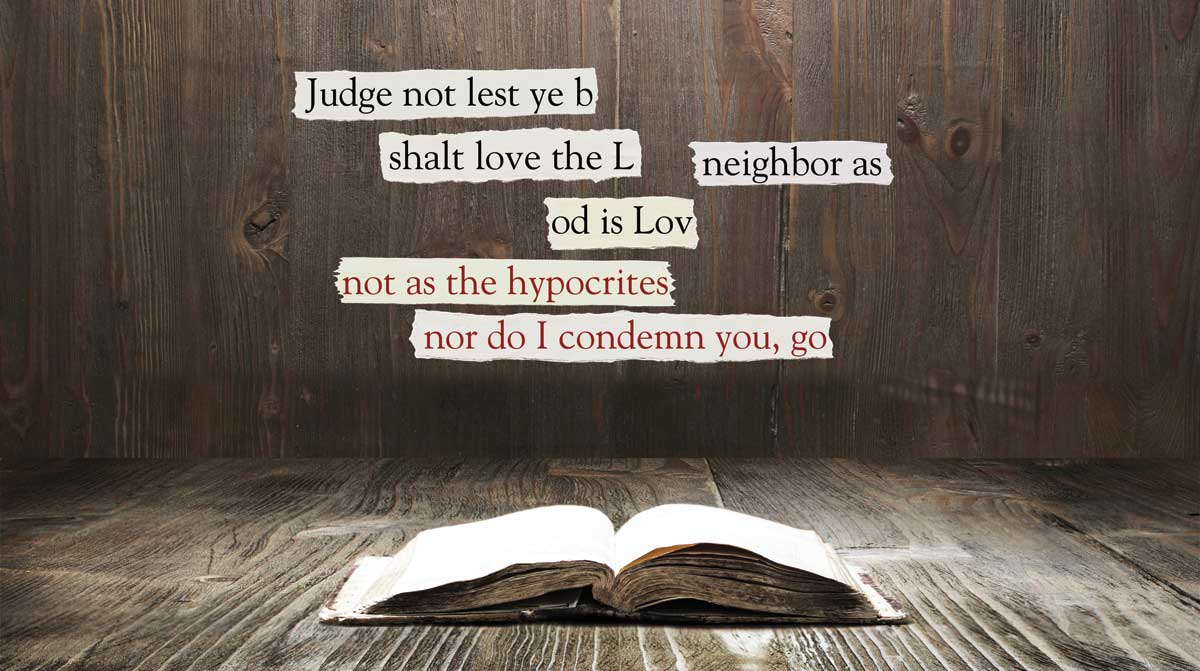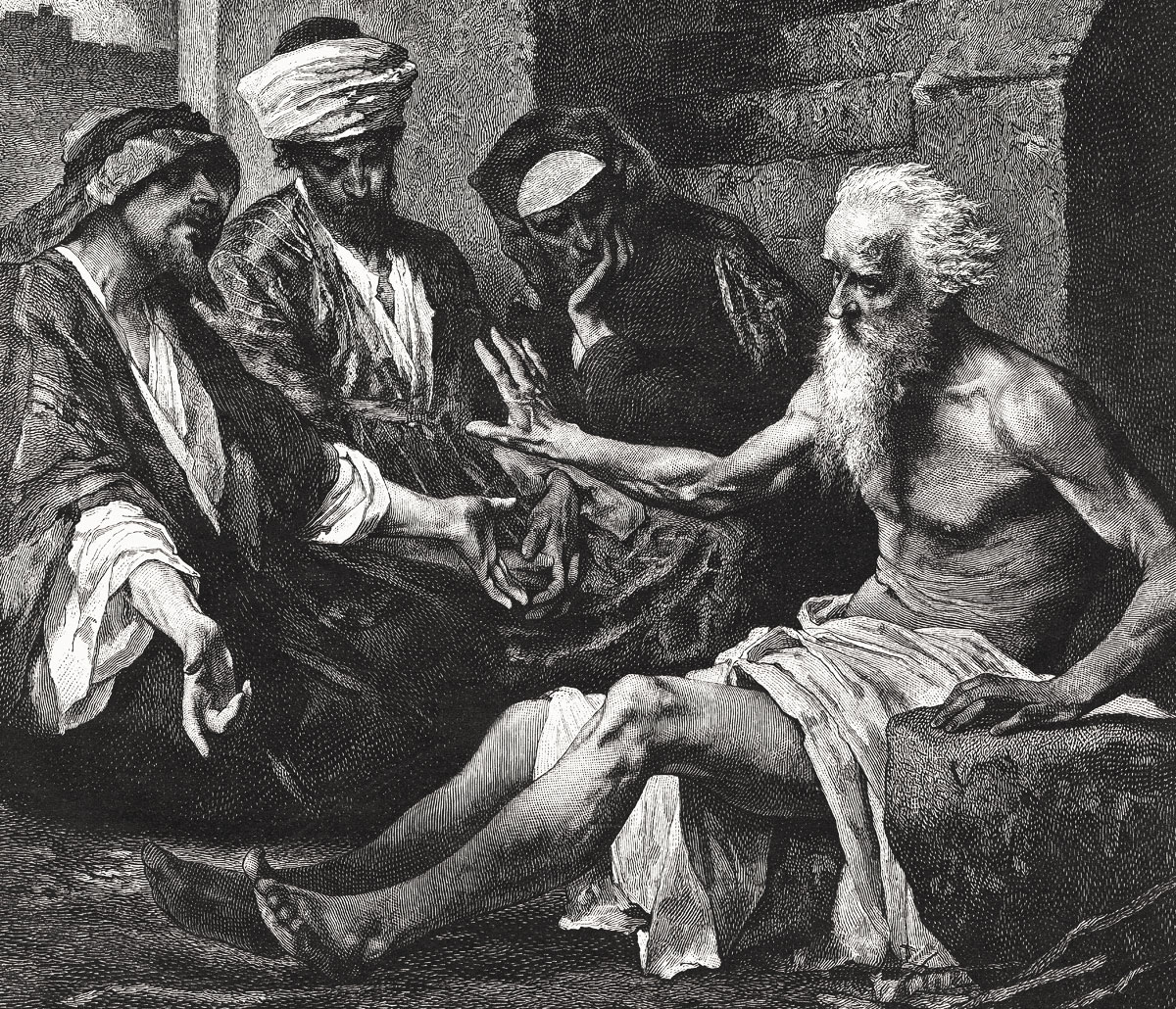Jesus, Son of Humankind?
The late Fr. Paul Mankowski, S.J., addressed the concern over gender-exclusive language in our October 2001 issue with the following article. Fr. Paul studied classics and philosophy at Oxford, and he earned his Ph.D. in comparative Semitic philology from Harvard. We decided to pull his words out of the archives for two reasons: (1) because this is one of those final-word articles—a true touchstone—that we want all our readers to see; and (2) because Fr. Paul reminds us that if we are ever going to free ourselves from the linguistic nonsense that so thoroughly entangles us, taking half-measures to where we were ten or twenty years ago will never do the trick. As C. S. Lewis wrote in The Abolition of Man, “Evil can be undone, but it cannot ‘develop’ into good. Time does not heal it. The spell must be unwound, bit by bit, ‘with backward mutters of dissevering power’—or else not.”
The dispute concerning the existence and extent of gender-exclusivity in natural languages, the relation of such exclusivity to sexism, and the use of so-called inclusive language as a remedy for such exclusion has been heightened in recent years by controversy surrounding the use of inclusive language in translation. This is especially true for the translation of texts considered to be, in some sense, “common property”: the works of ancient authors and other classics, traditional songs and carols, national documents of foundational stature, etc. In the case of new renderings of the Bible and of liturgical texts the passions of the disputants run particularly deep, for the obvious reason that all parties to the dispute recognize that more than sentiment or aesthetics is at stake.1
The purpose of this essay is fivefold: (1) to lay out the arguments of the adversaries in a clear light; (2) to demonstrate that only one of the rival accounts is tenable on linguistic grounds; (3) to elucidate the function of unmarked forms in general and their distribution in English in particular; (4) to examine the problems caused by the employment of inclusive-language devices in actual texts; and (5) to argue that the failure of such devices is inevitable, and not simply the failure of maladroit translators. The discussion necessarily centers on the use of inclusive language in English, itself a linguistically important fact. I shall principally use biblical and Roman Catholic liturgical texts to illustrate my remarks; however, with one exception, my arguments presume no specifically theological interests or allegiance, and the conclusions apply to translation generally.
THIS ARTICLE ONLY AVAILABLE TO SUBSCRIBERS.
FOR QUICK ACCESS:
Paul Mankowski is a lector in Biblical Hebrew at the Pontifical Biblical Institute in Rome. He has published Akkadian Loanwords in Biblical Hebrew (Harvard Semitic Studies #47).
subscription options
Order
Print/Online Subscription

Get six issues (one year) of Touchstone PLUS full online access including pdf downloads for only $39.95. That's only $3.34 per month!
Order
Online Only
Subscription

Get a one-year full-access subscription to the Touchstone online archives for only $19.95. That's only $1.66 per month!
bulk subscriptions
Order Touchstone subscriptions in bulk and save $10 per sub! Each subscription includes 6 issues of Touchstone plus full online access to touchstonemag.com—including archives, videos, and pdf downloads of recent issues for only $29.95 each! Great for churches or study groups.
Transactions will be processed on a secure server.
more on culture from the online archives
more from the online archives
calling all readers
Please Donate
"There are magazines worth reading but few worth saving . . . Touchstone is just such a magazine."
—Alice von Hildebrand
"Here we do not concede one square millimeter of territory to falsehood, folly, contemporary sentimentality, or fashion. We speak the truth, and let God be our judge. . . . Touchstone is the one committedly Christian conservative journal."
—Anthony Esolen, Touchstone senior editor














